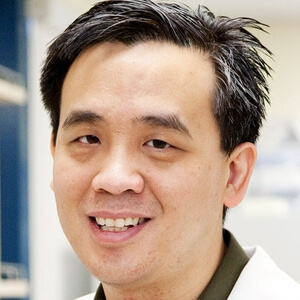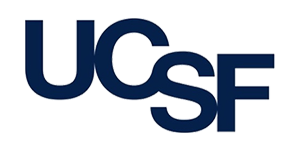Biography
Charles Chiu, M.D./Ph.D. is a Professor at UCSF, Director of the UCSF-Abbott Viral Diagnostics and Discovery Center (VDDC), and Associate Director of the UCSF Clinical Microbiology Laboratory. Chiu currently leads a translational research laboratory focused on clinical metagenomic sequencing assay development for infectious diseases and genomic investigation and surveillance of emerging pathogens, including the SARS-CoV-2 coronavirus. He also uses RNA-Seq transcriptome profiling to develop predictive models using machine learning for host response-based diagnosis of COVID-19 and other infections. Chiu’s work is supported by funding from the National Institutes of Health (NIH), Department of Defense, US Centers for Disease Control and Prevention (CDC), philanthropy, and the California Initiative to Advance Precision Medicine. He has authored more than 100 peer-reviewed publications (>20 on COVID-19), holds over 15 patents and patent applications, and serves on the scientific advisory board for Mammoth Biosciences, Danaher Dx, Biomesense, and Flightpath.
Session Abstract – PMWC 2022 Silicon Valley
Sequencing technologies are continuously improving, making it easier to obtain more in-depth molecular information than ever before. Emerging single-cell multi-omics sequencing technologies allow the capture of multiple modalities from a cell, including its epigenome, transcriptome, epitranscriptome, and proteome. This allows research into the heterogeneity of many biological mechanisms, and insights into complex molecular mechanisms that underpin disease.
Sessions:
- 4th Generation Sequencing Technologies & Genome Mapping Systems
- Barrett Bready, Nabsys
- Alka Chaubey, Bionano Genomics
- Eli Glezer, Singular Genomics - Long-Read Sequencing Technologies
- Steve Turner, PacBio - Single Cell Genomics
- Michael Schnall-Levin, 10x Genomics - Spatial Transcriptomics
- Jason T. Gammack, Resolve Biosciences - Pathogen Identification
Session Chair: Charles Chiu, UCSF
- Philip Stevens, Noscendo - Metagenomics and Microbial Profiling
- Amrie Grammer, Ampel BioSolutions - ML/AI for Diagnosis & Prognosis
- Todd Dickinson, Arc Bio - Modern Technologies for Pathogen Identification + AI
Session Chair: Sivan Bercovici, Karius Dx - Novel SBS Methodology
- Josh Lauer, Ultima Genomics - Proteogenomics
- Nigel Beard, Encodia - Advances Proteomics - Stratifying Cardiovascular Risk to Decrease Cost of Care
Session Chair: Roy Smythe, SomaLogic
- Adrian Lee, UPMC
- Jamie Bauersmith, UPMC - Leveraging Immune System Diagnostics to Improve Disease Outcomes
Session Chair: Kathy Kamath, Serimmune, Inc
- Noah Nasser, Serimmune, Inc
- Sasha Tabachnikova, Yale - Evolving Alzheimer’s Disease Therapeutics with Neuro Diagnostic Therapies (PANEL)
Session Chair: Kevin Hrusovsky, Quanterix
- Charlotte Teunissen, Amsterdam UMC
- Henrik Zetterberg, University of Gothenburg
- Nicholas Ashton, University of Gothenburg - PMWC Showcase (NCI)
- Michael Cardone, Eutropics Pharmaceuticals
- Robert Meltzer, Fluent BioSciences
- Cynthia Taylor Lawley, Olink Proteomics
- Niro Ramachandran, Akoya Biosciences
- Asim Siddiqui, Seer
Session Abstract – PMWC 2022 Silicon Valley
Large-scale genomic sequencing efforts are of ever-increasing importance especially in the context of early pathogen detection, disease outbreak prevention, and establishing a predictive and efficient public health response. Rapid generation and access to genomic sequence data for viruses and other pathogens, which could cause a pandemic or serious outbreak, enables the tracking of variants and emerging pathogens (e.g., SARS-CoV-2, influenza, enterovirus D68, antibiotic-resistant bacteria, etc.), and thus the expedient development of diagnostics, vaccines, and therapeutics essential to supporting public health responses. This very important subject will be the focus of this session.










